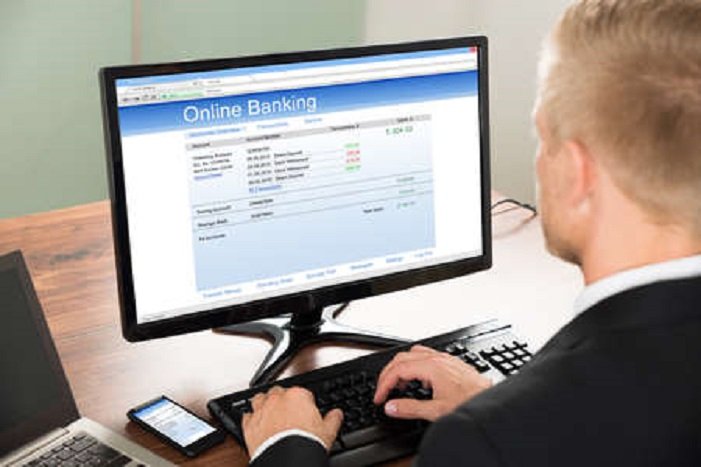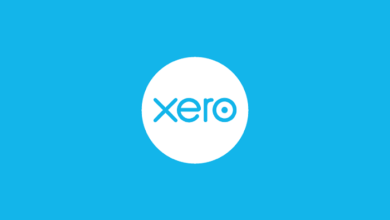Windows Computer For Banking: A letest guide.

Managing finances online has become a necessity for most of us. From checking account balances to transferring funds and handling investments, a reliable and secure computer is essential. As someone experienced in this field, I’m here to guide you on selecting the best Windows computer for your banking needs.
Why Opt for a Windows Computer for Banking?
Windows computers are popular for their versatility, user-friendly interfaces, and strong security features. These attributes make them ideal for banking and other sensitive activities. Here’s why a Windows computer is a good choice:
- Security Features: Windows offers robust security measures such as Windows Defender and BitLocker.
- Compatibility: Most banking software and apps are designed to work seamlessly with Windows.
- Performance Options: Windows computers come in various configurations, allowing you to choose one that fits your needs and budget.
Essential Features for a Banking Computer
To ensure your banking tasks are performed safely and efficiently, look for these key features when choosing a Windows computer:
1. Top-Notch Security
Security should be your number one priority. Here’s what to look for:
- Windows Hello: This feature provides secure facial recognition or fingerprint sign-in, making it hard for unauthorized users to access your computer.
- BitLocker: This encryption tool helps protect your data, ensuring that even if your computer is stolen, your information remains secure.
- Windows Defender: A built-in antivirus program that provides real-time protection against malware and other threats.
2. Reliable Performance
Smooth performance is crucial for banking tasks. Ensure your computer has:
- Processor: An Intel i5 or AMD Ryzen 5 processor is ideal for handling multiple tasks efficiently.
- RAM: At least 8GB of RAM is recommended to keep applications running smoothly without lag.
- Storage: Opt for a Solid State Drive (SSD) over a traditional Hard Disk Drive (HDD). SSDs are faster and more reliable, improving overall performance.
3. Clear Display
A clear and sharp display is important for viewing detailed financial information. Consider:
- Resolution: Full HD (1920×1080) or higher resolution ensures crisp visuals.
- Size: A screen size between 13 to 15 inches offers a good balance of portability and visibility.
4. Long Battery Life
If you often manage your finances on the go, long battery life is essential. Look for:
- Battery Life: At least 8 hours of battery life is recommended to ensure your computer lasts through your workday without needing a recharge.
5. Connectivity Options
Ensure your computer has the necessary ports and connectivity options to support your banking activities:
- USB Ports: Multiple USB ports are useful for connecting peripherals like a mouse, keyboard, or external hard drive.
- Wi-Fi: Support for the latest Wi-Fi standards (Wi-Fi 6) ensures fast and stable internet connectivity.
- Bluetooth: Useful for wireless connections to other devices like headphones or printers.
Recommended Windows Computers for Banking
Based on the features outlined above, here are some of the best Windows computers for banking:
1. Dell XPS 13
- Security: Windows Hello, BitLocker
- Performance: Intel i5/i7 processor, 8GB/16GB RAM, 256GB/512GB SSD
- Display: 13.4-inch Full HD/4K
- Battery Life: Up to 12 hours
2. HP Spectre x360
- Security: Windows Hello, BitLocker
- Performance: Intel i5/i7 processor, 8GB/16GB RAM, 256GB/512GB SSD
- Display: 13.3-inch Full HD/4K
- Battery Life: Up to 13 hours
3. Microsoft Surface Laptop 4
- Security: Windows Hello, BitLocker
- Performance: Intel i5/i7 or AMD Ryzen 5/7 processor, 8GB/16GB RAM, 256GB/512GB SSD
- Display: 13.5-inch or 15-inch PixelSense
- Battery Life: Up to 17 hours
4. Lenovo ThinkPad X1 Carbon
- Security: Windows Hello, BitLocker
- Performance: Intel i5/i7 processor, 8GB/16GB RAM, 256GB/512GB SSD
- Display: 14-inch Full HD/4K
- Battery Life: Up to 15 hours
Tips for Secure Online Banking
Even with a secure computer, it’s important to follow best practices for online banking:
- Use Strong Passwords: Create complex passwords and change them regularly. Avoid using easily guessable passwords like “password123.”
- Enable Two-Factor Authentication: This adds an extra layer of security by requiring a second form of verification.
- Keep Software Updated: Regularly update your operating system and banking software to protect against vulnerabilities.
- Avoid Public Wi-Fi: Use a secure, private connection for banking activities. If you must use public Wi-Fi, consider using a Virtual Private Network (VPN) for added security.
Conclusion
Choosing the right Windows computer for banking involves focusing on security, performance, display quality, battery life, and connectivity. By selecting a computer that excels in these areas, you can ensure that your banking tasks are handled safely and efficiently. The Dell XPS 13, HP Spectre x360, Microsoft Surface Laptop 4, and Lenovo ThinkPad X1 Carbon are excellent choices that meet these criteria.




